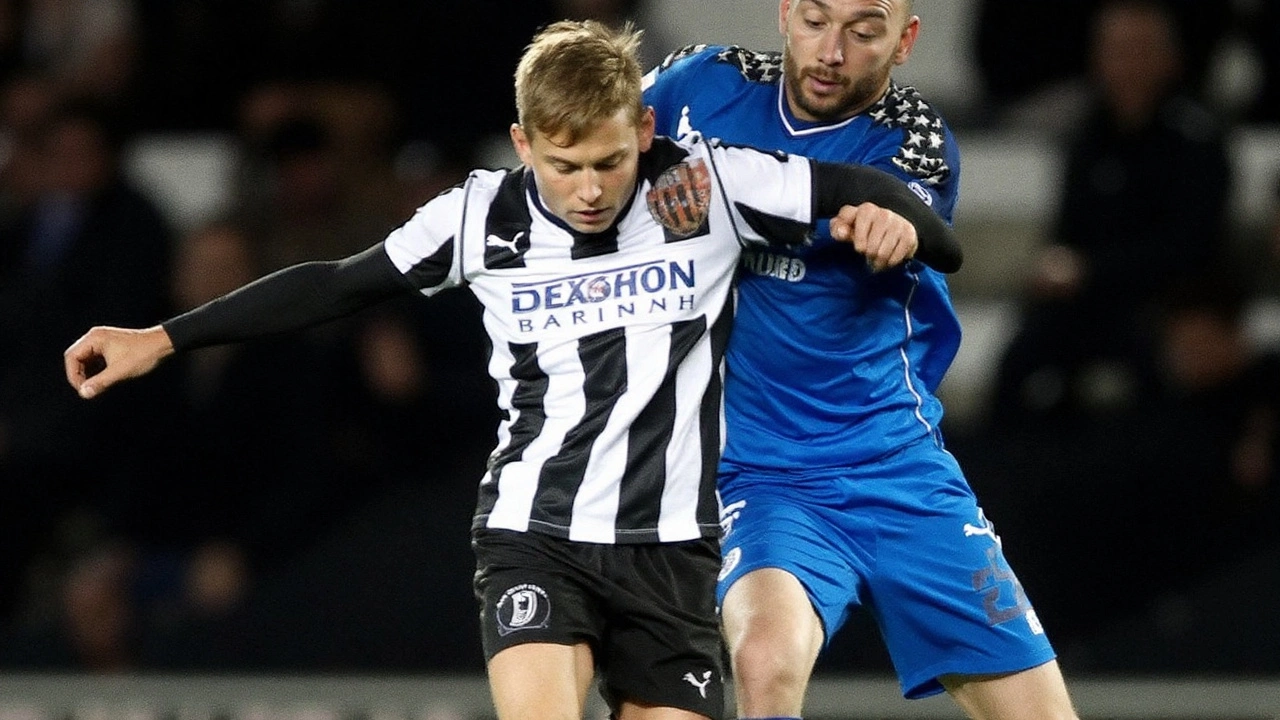The money gap didn’t show on the pitch. St Mirren took a point off Rangers in a 1-1 draw and walked away thinking they left two behind. Stephen Robinson didn’t sugarcoat it after full-time: his players were brave, organised, and good enough to win it. The message he’s been pushing for months — fear no one in the Premiership — didn’t sound like bluster here. It felt like a plan bearing fruit.
The game: a gutsy point or a missed opportunity?
This wasn’t a backs-to-the-wall survival act. St Mirren defended with purpose, pressed in bursts, and picked their moments to attack. They disrupted Rangers’ rhythm by squeezing midfield, forcing longer passes, and contesting second balls. When they broke, they did it fast and direct, getting runners beyond the first line and asking questions of a backline that didn’t enjoy the physical battle.
Both goals came from pressure that stuck. Rangers found a way through with the kind of tidy combination you expect from a side used to dominating possession, but the response said a lot about the home team’s confidence. St Mirren equalised with a move built on persistence — win it, recycle it, attack the space again — the type of pattern that looks simple on video but takes courage on the pitch.
Robinson’s post-match tone was clear. He praised the structure — compact without dropping too deep — and the willingness to play, not just clear their lines. He also pointed to the obvious frustration: chances came, and the final ball wasn’t always clean. Against Rangers, those moments decide games. He felt his side made more of them than the scoreline showed.
From a Rangers perspective, this is the kind of afternoon that grinds. They had periods of control, moved the ball as instructed, and still couldn’t shake a team that refused to fade. When St Mirren forced transitions, the visitors looked stretched. It wasn’t a collapse, but it was a warning that the league will not hand over points on reputation.

What this says about St Mirren under Robinson
Robinson’s team has an identity now. The shape can flex — a back three or a sturdy four — but the principles don’t. They press cues, not shadows. The wing-backs push when it’s on, the midfield locks the middle, and the forwards work across the line rather than waiting for service. It’s simple, honest football built on repetition, and it makes them awkward for the big two to solve.
The budget gap with the Glasgow clubs is real. That’s why performances like this matter. You can’t buy margin for error; you have to coach it. St Mirren don’t win every duel or complete every break, but they know how to stay in games long enough for moments to swing. When they do concede, they don’t unravel. That mentality comes from a dugout that refuses to frame these fixtures as free hits.
Recruitment and development help, too. St Mirren have leaned on smart loans, experienced pros with something to prove, and academy players who fit the pressing and running demands. The end product is a bench that can change the tempo without changing the plan. Late in games, fresh legs matter; here, they helped carry pressure into the final minutes when many teams would settle.
Set-plays quietly underpinned the performance. Delivery was aggressive, blocks were well-drilled, and runners attacked zones with intent. Even when it didn’t lead to a goal, it forced Rangers to defend facing their own net and slowed counterattacks. Those hidden minutes add up, especially against opponents who want the match to turn into a passing exercise.
And then there’s game management. Earlier in Robinson’s tenure, St Mirren could lose control after scoring or concede from their own mistakes. This draw looked different. Fouls were taken when needed, throw-ins were used to reset shape, and the team sensed when to commit numbers and when to park in a compact block. It’s not glamorous, but that’s how you turn effort into points.
- Bravery without chaos: St Mirren stepped into tackles and pressed on triggers, not emotion.
- Structure first: Narrow lines forced Rangers wide and slowed their switches.
- Set-piece edge: Aggressive delivery and rehearsed movement kept the pressure honest.
- Bench impact: Fresh legs maintained intensity late instead of fading into their own box.
Where does this go next? Robinson will ask for ruthlessness. The shape works. The mentality is there. What separates a good season from a great one is turning draws like this into wins. That means sharper decisions in the box and cleaner execution on the final ball. The coaching staff will circle a few sequences and say: this is the moment, take it next time.
The league picture is still settling, but points like this tilt trajectories. They give belief to a squad that’s learned to compete with anyone and remind bigger teams they’ll have to earn it in Paisley and beyond. Cup ties and tricky away days are coming; the style travels because it’s based on repeatable habits, not one-off emotion.
For the fans, it’s validation. The noise lifts when a team shows it isn’t overawed, and this group plays like it means it. Robinson won’t let the narrative drift into plucky underdog territory. He’s been consistent: respect everyone, fear no one, and keep the standards the same whether it’s Rangers, a newly promoted side, or a mid-table scrap. On this evidence, that mindset is catching on.
So, was 1-1 a good result? Yes. Was it enough for a dressing room that felt the game tilt their way? Not really. That tension — satisfied but not content — is exactly where St Mirren want to live. It keeps the edge sharp for the next test.








Write a comment